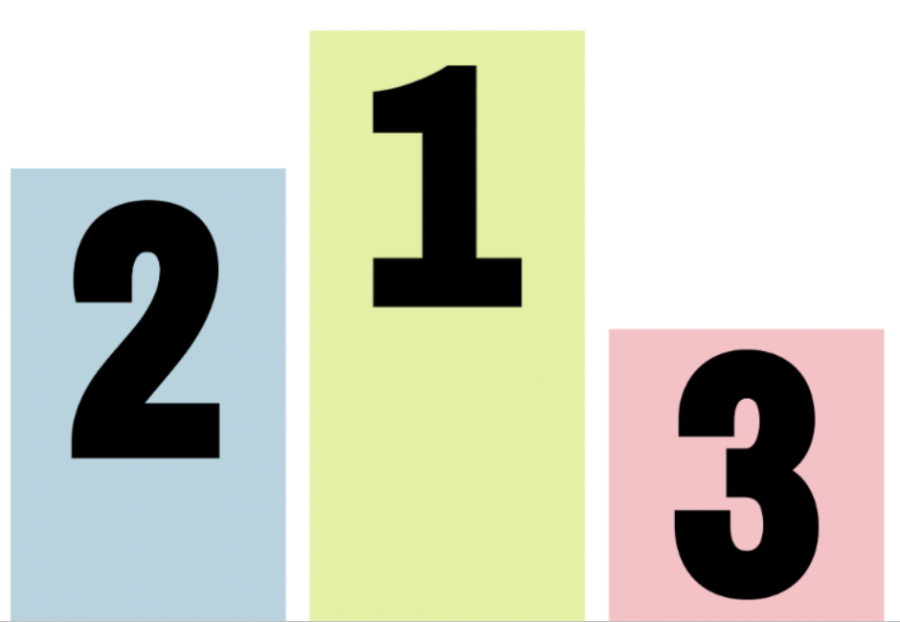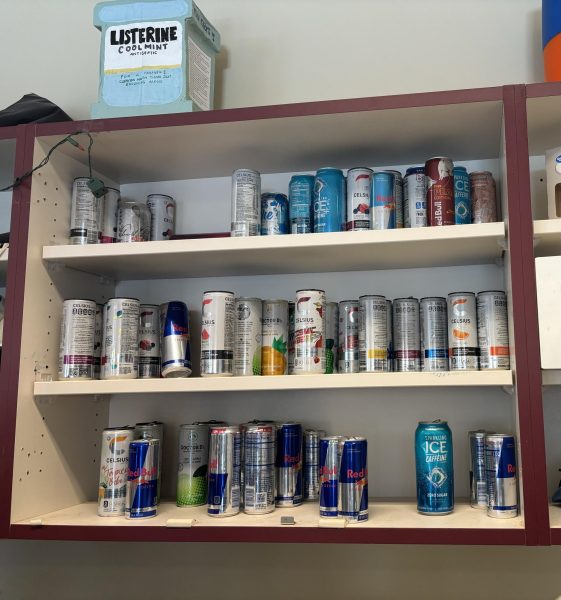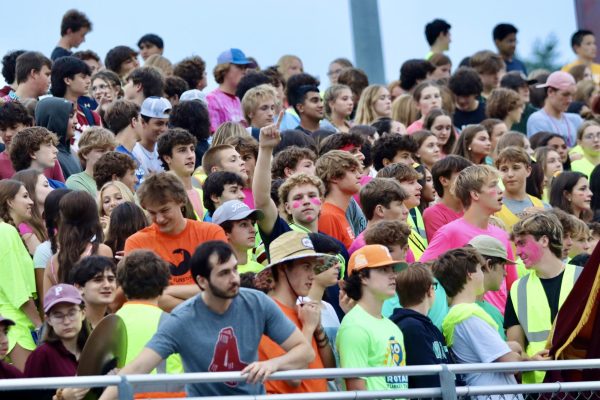PHS Students and Staff Explain the Pros and Cons of Class Rank
Here at Portsmouth High School, a class rank is calculated that compares students based on their weighted grade point average, according to the 2022-2023 PHS student handbook. This class rank is calculated and available to students after their fifth, sixth, and seventh semesters at PHS, and finalized after the third term of senior year. Traditionally, the top ten students in the graduating class are recognized during the graduation ceremony for their hard work throughout high school.
According to PHS college counselor, Brittany Lind, and senior and president of the Wellness Club, Alice Weir, the existence of class rank at PHS can cause a sense of competition between students and within themselves. This competitive aspect can be motivating for students but may cause unnecessary stress in high school.
“I think there is a large sense of competition, especially among the top few people in class rank,” says Weir who has experienced this firsthand as the salutatorian of the graduating class.
Weir and Lind both point out that for some students, striving for a higher GPA or better class rank could be motivating. “I think that it is a good way to inspire students to continue to work hard in their studies,” Weir says.
They also stated that for other students, the competitive nature of class rank can have negative impacts on their mental health. “In my experience, the majority of the time it ends up having negative outcomes because students stress themselves out so badly because they’re trying to compare themselves to another student,” Lind shares. Internal pressure or pressure from parents and peers “can create a lot of stress where it’s not needed,” according to Lind.
Weir shares her personal experience with the stress caused by class rank, sharing that “I have spent far too many hours of my life worrying about class rank. It kind of makes me sick to think about it.”
Lind has noticed that students often get hung up on class rank that they miss out on some of the opportunities high school has to offer. She shared that in a recent survey of PHS students, 50% of students said they take classes because of the level of the class instead of personal interest. She explained that because the class rank is based on weighted GPA, some students will choose not to take a class they are interested in because of concern for the effect it would have on their GPA. “High school is a place where you should be allowed to make mistakes, where you should be allowed to explore,” Lind says. She feels some students have lost sight of that because of class rank.
PHS Principal Stephen Chinosi points out that class rank celebrates students who have worked hard to achieve academic success in high school. He believes it is very important “to celebrate kids who work hard in anything,” whether in academics, sports, or even community service.
He supports “anytime we can celebrate [students academically]”, but also says, “I don’t know if we need rank to celebrate hard work academically.”
Chinosi, Lind, and Weir all expressed the sentiment that class rank may not be the best way to acknowledge academic achievement. “[Class rank is] celebrating a very particular approach to success in high school,” Chinosi says. “We’re all running a very unique race.”
“Performance in school encapsulates a lot of different things which I don’t think can be quantified into grades,” Weir mentions. She cites social skills and class participation as a few of the aspects of high school that cannot be quantified.
Lind expressed openly that she would be on board with eliminating class rank at PHS for a different way to celebrate academic achievements such as the Laude system. The Laude system is broken up into three categories: cum laude, magna cum laude and summa cum laude based on high GPAs.
She ensured that no changes would be made without careful consideration and research. “We would poll college admissions representatives,” Lind explains. “There are a lot of pieces that go into making sure that we’re doing what’s best for our students.”
Weir believes students should have more of an influence on the topic of class rank. “If students’ mental health and future are being dictated by this ranking system, then they should have some say in it.”







